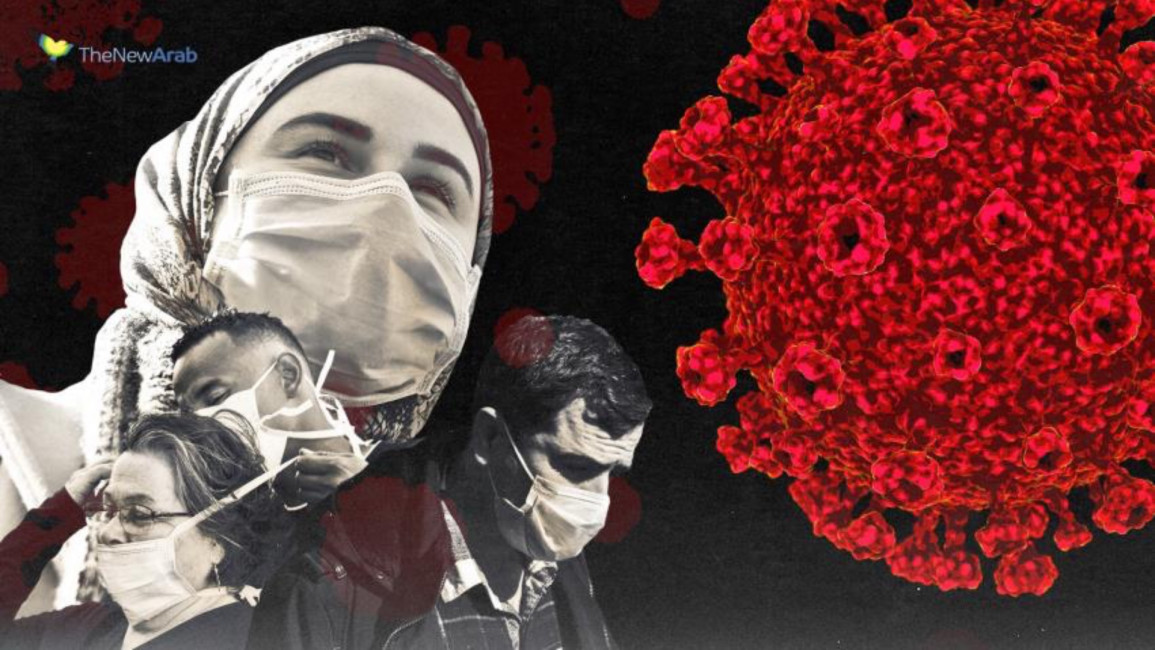Follow us on Facebook, Twitter and Instagram to stay connected
The Middle East at war with coronavirus: Top stories from 22 May
Here are five stories you need to know about the coronavirus pandemic and how it is affecting the Middle East on 22 May:
1. Muslims don't allow coronavirus to ruin Eid
Muslims worldwide will celebrate one of their biggest holidays under the long shadow of the coronavirus, with millions confined to their homes and others gripped by economic concerns during what is usually a festive time of shopping and celebration.
The three-day Eid Al-Fitr marks the end of the fasting month of Ramadan for the world's 1.8 billion Muslims. People usually celebrate by traveling, visiting family and gathering for lavish meals - all of which will be largely prohibited as authorities try to prevent new virus outbreaks.
The holiday will begin on Saturday or Sunday, depending on the sighting of the new moon, and the dawn-to-dusk fasting of Ramadan will come to an end.
Some countries, including Turkey, Iraq and Jordan, will impose round-the-clock curfews for the duration of the holiday. In Saudi Arabia - home to the holy cities of Mecca and Medina - people will only be allowed to leave their homes to buy food and medicine.
Read more here
Ten journalists in Egypt have been arrested since the coronavirus pandemic reached the country, a local rights group has found.
The Arab Network for Human Rights accused authorities of using the pandemic to arrest those believed to be dissidents, in a wider campaign against protest adopted by other countries, including Algeria.
“The health conditions in Egyptian prisons have deteriorated, and inmates are not receiving necessary health care,” the network said, pointing to the case of Shady Habash, a young Egyptian filmmaker detained for two years without trial who died suddenly this month.
Habash’s death prompted accusations of medical negligence and raised fears about unhealthy conditions in prisons.
Egypt’s public prosecution released a postmortem report saying he mistakenly poisoned himself by drinking hand sanitizer in his cell.
The rights group outlined cases of 10 journalists recently caught up in President Abdel Fattah Sisi’s sweeping crackdown on the press.
Read more here.
3. Coronavirus disrupts burials in Turkey
The government shut down mosques in March for mass prayers as part of efforts to stop the spread of the virus, disrupting funerals.
Ayhan Koc, head of Istanbul's cemeteries department, said a fast burial without traditional Islamic rituals was an efficient and correct method given the current situation.
|
He said in the past there would have been a funeral prayer after the midday and afternoon prayers but now the aim was to ensure a speedy burial, without even taking the body to the mosque.
And rituals are no longer allowed where people visit the family of the deceased to offer their condolences and where verses from the Koran are recited."A virus which could only be seen through a microscope has changed the world order, everything; customs, traditions and funeral ceremonies. It has changed even death," said Koc.
Read more here.4. Sixteen Moroccan companies export face masks to Europe
A growing number of Moroccan companies are providing European countries with protective equipment, as many are easing coronavirus lockdown restrictions and people are returning to work.
A total of 16 companies are exporting reusable protective equipment to Spain, France, Italy and Germany.
Morocco has 73 units and cooperatives that manufacture washable, reusable masks.
The Moroccan Ministry of Industry told Spanish news agency EFE that the export of masks has slowly grown since 10 May and may continue to do so in the coming weeks.
Read more here.
A range of aid programmes in war-ravaged Yemen, including ones responding to coronavirus, could be cut in the coming weeks because of funding shortages, the UN warned on Friday.
The United Nations and Saudi Arabia will host a donor conference on June 2 in a bid to boost support for Yemen, which was already facing the world's worst humanitarian crisis before the pandemic struck.
"We are urging the donors to pledge generously, and those who have given an indication of pledges to actually pay early because the operation in Yemen is severely, severely underfunded," Jens Laerke, a spokesman for the UN's humanitarian agency OCHA, told a virtual press conference.
"We are heading towards a fiscal cliff," he warned.
"If we do not get the money coming in, the programmes that are keeping people alive and that are very much essential to fight back against Covid will have to close."
Read more here.



